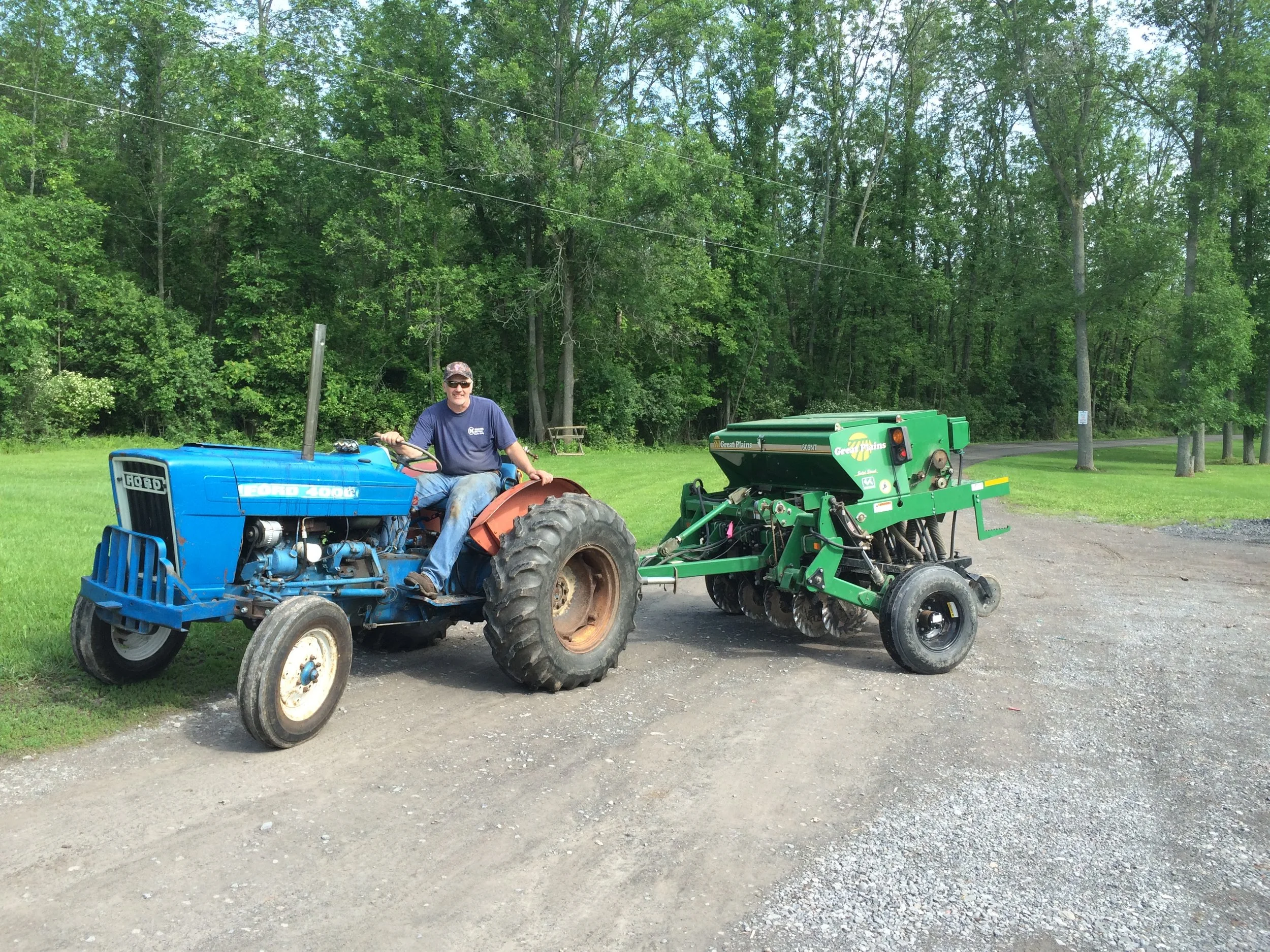Habitat Programs
no-till Drill
The Federation purchased a special no-till drill in conjunction with the National Wild Turkey Federation and Pheasants Forever. The drill is specifically designed to install warm season and cool season grasses for enhancing our natural wildlife areas. The Drill has been used to plant over 1000 acres to date. This drill is available to anyone in Niagara County that meets criteria and is managed by Niagara County Soil & Water District.
Contact: Mark Seider (716) 432-9655 or mark.seider@ny.nacdnet.net
Tree Giveaway Program
The Federation has purchased and distributed over 1000 pure strain American Chestnut seedlings along with, Apple, American Filbert and Persimmon (male and female) trees that are planted in Niagara County. Our hopes are to help restore these once populous American Chestnut throughout the county and to provide a food source for wildlife with the other species. Orders must be placed by February 28 and trees must be planted in Niagara County.
American Chestnut Tree Seedling Program
The Niagara County Federation of Conservation Clubs, Inc. Habitat Committee will be distributing American Chestnut tree seedlings free to be planted on suitable sites in Niagara County.
The American Chestnut once dominated the eastern forests. A blight was introduced from China/Japan in the early 1900’s. The American Chestnut tree had no/little resistance and most died off. Through research, trees were found that had some resistance to the blight or they lived in blight free areas. The American Chestnut trees we are providing are pure stock (not hybrids) and come from the American Chestnut Council in Cadillac, Michigan. Our hope is that we can help revive these magnificent trees to many locations throughout Niagara County for future generations to enjoy.
American Chestnut trees are difficult to grow. They need specific soil conditions and locations. They will not grow just anywhere. We will only distribute trees to those locations that meet the following growing conditions:
Well-drained, acidic soil type. This is THE most important consideration when planting chestnuts. Choose wisely. Sandy, loamy, well drained and somewhat acidic soil (pH 4.5-6.5) on gently sloping fertile land is best. Avoid heavy clay soils. Review your property’s location on county soil maps from the Natural Resources Conservation Services (NRCS). Many of these are available on-line (http://websoilsurvey.nrcs.usda.gov/app/), but you may also find them in your local library.
Avoid planting in swales. Swales can hold water, Chestnuts won’t grow in wet areas.
Exposure. Full sun is best for growth, vigor and seed production. A sheltered north-facing slope protected from drying winds and low sun of winter may be better for cold windy sites. Planting on a slope may also help alleviate some drainage issues.
Site preparation will depend on the condition of the site. If the site is uncultivated, trees and brush should be removed, the field mowed, and regrowth controlled. Within planting rows, spray herbicide 2 weeks prior to planting, or otherwise remove sod and competing vegetation.
Clear-cuts vs. fields. Assuming you want maximum growth and nut production, you will be choosing an open site. Clear-cuts typically have proper mycorrhizal associations for trees and may maximize growth potential because of their fertility. Old fields can often be easier to maintain, but they often have hardier weeds that take persistence in management.
The seedlings will arrive in April. You need to have your site ready for planting by then. These will be bare root seedlings. You can pick the seedlings up promptly and plant them so that they do not dry out. We will let you know the pickup date and location. As a recipient of this program, we ask that you keep a record of how the trees are doing. We hope that all will survive and grow to maturity, but realize some will not survive. You will be provided with three seedlings as a minimum. You will need space for three trees to grow to adulthood.
Please contact Chris Schotz (390-3223) or Dave Whitt (754- 2133) so that we can place you on a list to receive these seedlings.
